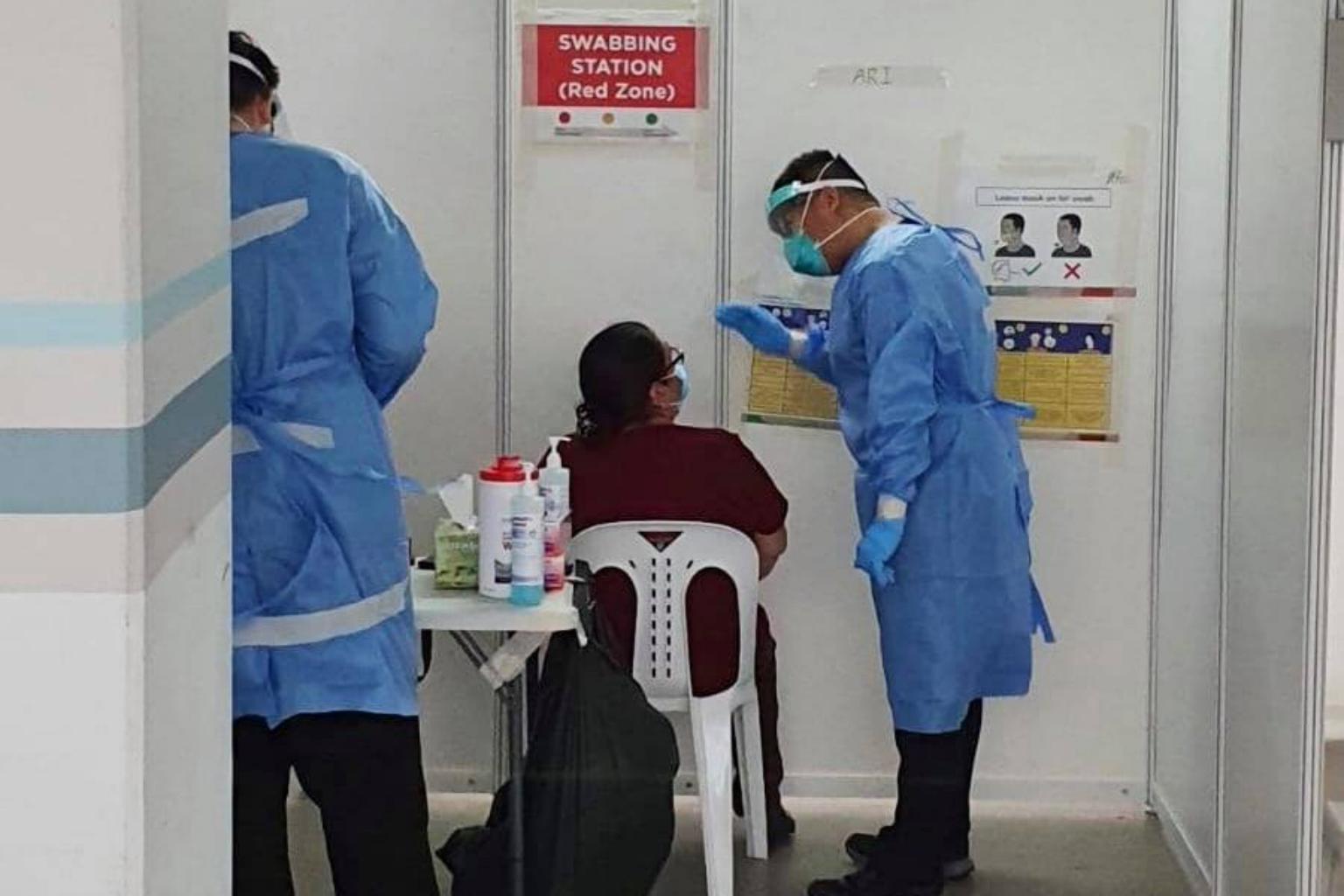MOH to improve Covid-19 testing procedures, quarantine process for persons with special needs
Sign up now: Get ST's newsletters delivered to your inbox

MOH will study the effectiveness of alternative Covid-19 tests that are less intrusive than swab tests (above) for people with special needs.
PHOTO: RAHAYU MAHZAM/FACEBOOK
SINGAPORE - Testing procedures will be improved for persons with special needs, following accounts by caregivers of how their loved ones were traumatised by having to undergo nasal swabs.
Parliamentary Secretary of Health Rahayu Mahzam said in a Facebook post on Wednesday morning (June 9) that personnel carrying out these tests will be trained in how to handle persons with special needs. She said the Ministry of Health would also study the effectiveness of alternative tests.
Caregivers and persons with special needs can also expect a smoother quarantine process, MOH said, as it will improve communications between the various agencies involved.
Two accounts by caregivers on Facebook in the last few days drew thousands of reactions, and sparked calls for the authorities to do more to help people with disabilities through Covid-19 protocols.
In one of them, Ms Cindy Chee, 45, wrote about how her 18-year-old son, Matthew, was not exempted from mandatory swabbing despite her concerns and those of his teachers, until staff witnessed him hitting the wall out of distress and trying to drag her out of the swabbing tent.
She said it takes time to teach new routines, especially if they are uncomfortable, to someone with autism. Matthew needed six months before he would wear a mask and accept that his masked mother and teachers were not "bad people".
With just one night's notice to prepare for testing on June 1, Matthew was terrified and unable to sleep, even though Ms Chee tried to help him by showing him slides of what to expect.
In a journal entry on the same day after the failed swab attempt, the student of Rainbow Centre Yishun Park School recalled a room with many covered heads and faces.
He wrote: "They looked so scary to me. They wanted to put (a) stick in my throat... I (wanted) to leave the room."
Ms Chee said the last time Matthew had seen people in such gear was when his father died in intensive care three years ago. "Now when he hears about swabbing, he will go 'no, no, no' and shake his head vigorously."
Special education teacher Amilia Koh, 26, also wrote about how her 34-year-old brother, who has an intellectual disability, struggled during his swab test on June 4, unable to comprehend the situation, till he was on the brink of a meltdown.
Her brother had to be quarantined after attending a session last month at MINDSville @ Napiri, where a Covid-19 cluster was detected.
At the quarantine facility, Ms Koh said staff took turns trying to swab her brother, who became more frustrated. She said she was allowed to step in to help calm him only after 30 minutes.
Noting that people with special needs may not understand the dangers of Covid-19 and the precautions required against it, she told The Straits Times: "As this group of individuals is vulnerable to virus transmission, changes have to be implemented in the way (the authorities) approach such unique cases."
An earlier administrative error had also prevented her initially from being allowed to go with him to the facility, although she had registered to be his caregiver.
Ms Rahayu said that the Health Ministry has heard the feedback from both caregivers.
"We understand their grievance and it is indeed unfortunate that they had to go through such an experience," she said.
"We recognise that the swab process and the quarantine can be more challenging for persons with special needs as they may not be comfortable with unfamiliar people or environment."
On improving the swab test process, Ms Rahayu said that personnel trained to do swab tests "have not been specially trained to deal with persons with special needs".
"We are looking into engaging relevant professionals, as well as volunteers from the National Council of Social Service, who are trained to work with persons with special needs," she noted.
MOH will also review the use of less intrusive Covid-19 tests for persons with disabilities.
On the quarantine process, Ms Rahayu says MOH accommodates requests for an accompanying caregiver for quarantined individuals if they are elderly, minors, or have medical conditions that result in them being unable to look after themselves.
"We have reminded Certis, our agent for quarantine orders, to be mindful and exercise compassion when dealing with persons with special needs," said Ms Rahayu.


